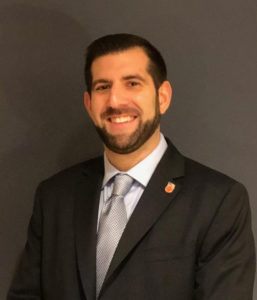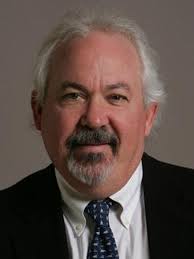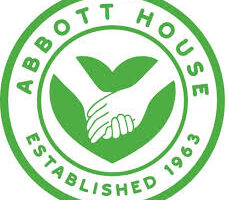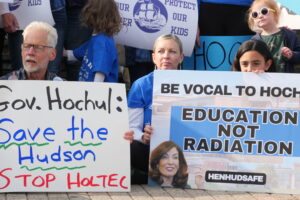
Everyone knows that local news media is shrinking. Whether there’s no longer a paper arriving to your home with reports on the happenings about town, or the newspaper you’ve read for years seems to keep getting thinner and thinner when you pull it out of your mailbox, there’s no denying the small-town news industry is dwindling to near extinction. Everyone also seems to generally be in agreement that this is a bad thing. People have to spend more time seeking out news by searching online or making phone calls for information regarding community events, or they’ve simply come to accept missing out on a lot of what’s happening around them.
A new study published in Urban Affairs Review suggests the not-too-slow disappearance of local news has even greater consequences than most of us probably ever imagined. While this study doesn’t reflect on what you find here in the pages of The River Journal or fellow monthly The Hudson Independent, it does show the diminished impact daily newspapers can have when they suffer severe staff reductions. Co-authored by Cleveland State’s Meghan Rubado and University of Texas’ Jay Jennings, the recently-published Urban Affairs Review research argues newspaper closures and staff cuts have a direct correlation to local political elections and policies. With less professional coverage, the paper contends, citizens become less informed about elections, resulting in a marked reduction in mayoral candidates.
Our take on this story here at The River Journal is in no way a critique of our local mayors but rather food for thought for residents to be/stay more involved in their communities. As Rubado and Jennings wrote: “In a well-functioning system, citizens need to be actively engaged in their government and aware of decisions made by their elected representatives.” Newspapers have long served as a means for communication between citizens and politicians, and the study amplifies the importance of what’s being lost.
So, then, what exactly is so bad about all this? Well, voters have less choices for one, which may lead to less interest in the outcomes. Just as voter turnout falls drastically, incumbents are more likely to get re-elected. As an article in Harvard’s Nieman Labs pointed out, newspaper “closures aren’t the big problem (yet). It’s that nearly all American local newspapers have been cut and cut and cut to Lilliputian dimensions.” The findings by Rubado and Jennings — which used research on 11 California newspapers and two decades of local elections — suggest not only bigger newsrooms result in smaller margin of victory for winners but also less of a chance that a mayoral election will see an incumbent running unopposed. When a newsroom is being run by a few reporters juggling the jobs of several, the tendency is to keep focus on the already-known, established politician in a race — the ones readers are already familiar with and thus attracts more readers’ eyes. Simply put, more staff means more coverage for other candidates; less staff means less coverage for lesser-known office hopefuls, leading many to drop out of races early, if they even bother to run at all.
To put it into context for those of us here in Westchester: Of the 14 Mayoral elections this past March, 11 were uncontested (Briarcliff Manor, Bronxville, Buchanan, Elmsford, Hastings-on-Hudson, Larchmont, Pelham Manor, Pleasantville, Rye Brook, Scarsdale and Sleepy Hollow), and only three were contested (Port Chester, Pelham, Tuckahoe). Given the dramatic cut backs at The Journal News (lohud.com) in recent years, area residents are clearly affected by this bigger national trend.

But perhaps there are alternatives. “Many people still find the best way to get information on a candidate is a face to face conversation in the Village at a meet the candidate type event,” said Steven Vescio, mayor of Briarcliff Manor. “We are always trying to be as transparent and accessible as possible. Our meetings are broadcast live and able to be streamed on demand. Residents can always reach me via email. Our Village Manager sends out an email each Friday with an update on all pertinent items.”

Just as social media has played a role in destroying newspapers, it has also stepped in as a news source and a means of learning about politicians’ agendas and potential candidates. Twitter, Facebook, etc., also gives elected officials and would-be leaders a platform for spreading their message, interacting with voters, and posting about upcoming appearances. Some office holders encourage an even more direct way of communication, including Ken Wray, mayor of the Village of Sleepy Hollow. “Social media can be very helpful when it comes to letting people know about upcoming events, but I think people should get out from behind the screen/phone,” he said. That’s why he suggests attending public meetings, or even approaching him and other officials when they’re seen out on the street. “When you’re on your own turf, in a familiar environment, I think you’re far more comfortable engaging in the questioning and debate that is critical to ensuring that your local government is doing what it needs.”

Tarrytown’s mayor, Drew Fixell, also cited town hall meetings as “one way to learn about incumbent members” of boards. “Nearly all meetings, other than executive sessions, are open to the public,” he said. Along with twice-monthly Board of Trustee meetings, Fixell listed Planning and Zoning board meetings and sessions of committees like the Environmental Advisory Committee as good sources for citizens to learn about what’s happening and to express their own voices.
Along with encouraging the public to reach out to Tarrytown officials at tarrytown.gov addresses using first initial and last name convention, such as dfixell@tarrytown.gov, he suggested checking into grassroots movements not directly associated with government. He said, “There are a number of groups, such as Indivisible, that are active in our area, and there also are local political party committees for the village, town and county, with which residents can become involved.”

Of course, not every politician has experienced the trend of unchallenged elections. The mayor of Ossining, Victoria Gearity, described being elected to a third term following “a very heated and divisive campaign” against a member of her own party. While she did run unopposed in 2016, she defeated a four-time incumbent from her party in a “hard fought and nasty campaign.”
Even still, Neiman Labs points to studies separate from Urban Affairs Review’s research that show daily newspapers — when operating at healthy levels — have a direct impact on a range of local politics, such as reducing corruption in government; making readers more knowledgeable overall about politics; encouraging less partisan voting; influencing those in office to work more efficiently; and even driving local TV reporters to better their city hall coverage due to competition from daily papers. If that’s not enough, one study indicated daily local newspapers improve cities’ finances.
There seems to be little doubt we are only beginning to see the ramifications of what happens to elections when small papers downsize or disappear. In the coming years, we’re also likely to see how this trend affects larger elections, even to some extent to who sits in the Oval Office. After all, as Ken Wray said, borrowing a popular phrase, “All politics is local.”






